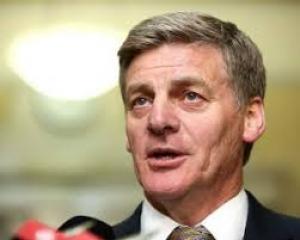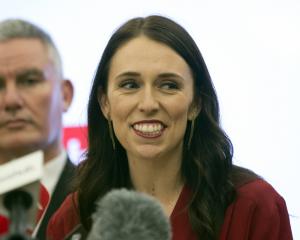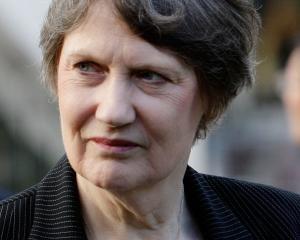
The point is simple. As time passes after an event the ''fact'' become less clear. Different ''facts'' and perspectives emerge as documents come to light, memories adjust or some speak out who hadn't at the time or just because as time passes historians interpret events with new hindsights.
Why? Events are done or experienced by humans. Humans are not blocks of iron or ice. They are highly complex biological systems, on which multiple influences play.
Distilling exactly what has happened can challenge even acute and sober minds, as former judge and governor-general Dame Silvia Cartwright found (so she told the New Horizons for Women Trust on Friday) when for eight years to 2014 she sat as one of two foreign judges in the trials of perpetrators of horrendous, maniacal mass killings of up to a quarter of all Cambodia's citizens by the 1970s Pol Pot regime.
Back in 2004, Dame Silvia provided an illustration of how perceptions of even a nation-founding event can evolve as a society evolves. In her Waitangi Day vice-regal address, she backed a reinterpretation of William Hobson's ''he iwi tahi tatou'' at the Treaty's initial signing as: ''We many peoples together make a nation.''
The standard version had been: ''We are now one people.''
A recent event, an SAS operation in Afghanistan in 2007, has been under re-examination over the past two weeks. The ''facts'' are in dispute.
Some think this ''fog of war'' can be lifted only by a tribunal, headed by Inspector-general of Intelligence and Security Cheryl Gwyn. However, there would be no inquiry into allegations about SAS raids Prime Minister Bill English announced late yesterday.
United Future's Peter Dunne in his weekly blog last Thursday mused that a complicating factor might be because the classified video footage (said to contain codes Islamic State might like to have) confirms Americans were ''more explicitly involved than indicated to date'' and it could be uncomfortable for New Zealand to expose this, ''given the unpredictability of the current [United States] Administration?''
Mr Dunne made a wider point, which goes to the heart of our democracy.
He said his reference to Americans was ''supposition''. Paraphrasing a Sir Winston Churchill aphorism that a lie gets ''halfway around the world before the truth has a chance to get its pants on'', he added: ''While truth is . . . looking for its trousers, rumour and speculation take hold. And in today's world of instant communication that quickly becomes the new unshakeable truth. Alternative facts, some might call them.''
''Alternative facts'' and ''fake news'', along with ''bots'', all amplified through social media platforms (Twitter, Facebook, Google, etc) and targeted to individuals on the basis of their clicks or mined psychometric data, were a factor in the United States election.
Will they influence our election, an Auckland University debate on June 8 will ask?
We can probably assume the Russians, who helped Donald Trump with selective leaks, won't bother with us. Germany's elections the day after are a much juicier target.
But, as noted here three weeks back, political parties and dark forces backing them now have far more and slinkier weapons than even half a decade back.
That highlights journalists' role. Accurate, trustable news is critical to a well-functioning democracy, as Jacqui Park, chief executive of the Australian Walkley Foundation which supports good journalism, told a conference on Friday exploring whether ''journalism matters''.
Bad news from the conference: traditional news organisations have heavily cut staff as advertising revenues have fallen while also requiring reporters to file very fast and do that in all of tweets, writing, audio and video; executive-level representatives of the two big newspaper-based chains envied Radio New Zealand's funding freeze since 2008; advertising is migrating to the big platforms such as Facebook which cannibalise journalists' work without paying for it; younger people get all or most of their ''news'' digitally.
Good news: Radio New Zealand does a creditable job of balanced daily news reporting and analysis; web-based startups drawing on crowd funding, philanthropy, business and other sponsorship are starting to fill some gaps left by traditional operators' contraction and some have specialist subscriber bases; journalists still want to do objective inquiries.
Most at the conference, including Labour's Clare Curran and the Greens' Gareth Hughes (no National MP was there), thought some taxpayer funding, overseen by an independence board, is justified on democratic grounds.
Former New Zealand Herald editor-in-chief and now Auckland academic author Gavin Ellis suggested basing a national newsgathering and dissemination service on Radio New Zealand to underpin individual outlets' work.
But the conference was thinly attended - a passing event, a democrat might say.
-Colin James is a leading social and political commentator. ColinJames@synapsis.co.nz
Comments
The linking of Journalists' work to Social Media is appropriation by non journalists. This is easily stopped by making the online paper not linkable. I once discussed this with ODT editorial, which did not see a necessity to fence product.












